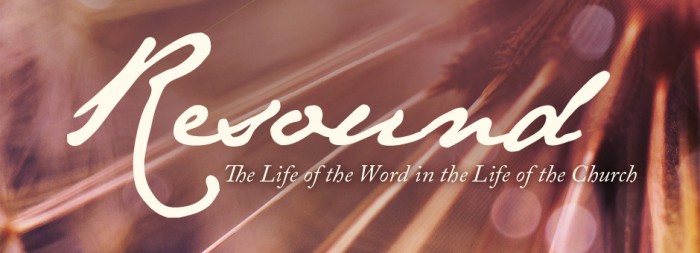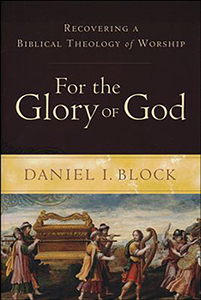
Let the word of Christ dwell in you richly, teaching and admonishing one another in all wisdom, singing psalms and hymns and spiritual songs, with thankfulness in your hearts to God.
THE POWER OF A SONG
It was just over 100 years ago, in the early days of August 1914, that the War to End All Wars broke out and began to claim hundreds of thousands of killed, wounded, and missing soldiers. Four months later as the soldiers were firmly fixed in harrowing immovability of trench warfare, politicians and culture leaders were calling for a Christmas truce. Pope Benedict XV’s appeal for a cease-fire at Christmas made headlines, but was quickly rebuffed by both sides as “impossible.” The neutral US Senate urged for a twenty-day truce at Christmas “with the hope that the cessation of hostilities . . . may stimulate reflection upon the part of the nations [at war] as to the meaning and spirit of Christmas.” But the warring armies paid no attention to isolationist American and were content to keep on killing each other.
And so it was, to the everlasting astonishment of military history, that on the night of Christmas Eve one could find the Germans mingling with British, French, and Belgian soldiers – men they were trying to eliminate just hours earlier – in the middle of No Man’s Land; talking, exchanging gifts, and telling stories. The legendary Christmas Truce of 1914 came, not through the intervention of governments and petitions of well meaning leaders. Rather, is was the singing of an old gospel carol – “Silent Night” – that gave the entrenched foes a few hours of Christmas cheer and peace.
Nostalgic familiarity is what really brought those soldiers out of their trenches that Christmas Eve night, but we cannot dismiss how the event embodied the sheer power of a song.
Singing’s power is something the apostle Paul knew well, for in our text tonight we find him saying that singing how the power to let the gospel take up residence in a person’s heart.
SING COLOSSAE!
Colossians is a short letter that’s saturated with the supremacy of Christ. If you ever find your soul in need of a spark of spiritual power, read Paul’s letter to the church at Colossae. Here you will find some of the most exalted descriptions of Jesus, His gospel, and the Christian life.
Colossians 3 is one chapter I’d encourage every child of God memorize. In 3:1-4 Paul tells Christian they have been raised and seated with Christ in heaven. Therefore, 3:5-9 tells Christian to put off the old self of sin, and 3:10-17 tell us, as God’s chosen ones, to put on the new self. And Paul says singing plays a crucial role for our growth in Christ. If you wanted to sum up the truth of Colossians you might say: Singing has the power to put the gospel into your heart. If a song could bring peace to enemy troops in the Great War, just imagine what it can do for those united to Christ in faith.
SONGS TEACH
Before we look at one part of this glorious verse we need to get a sense of the whole. For there are a variety of different views (because of word placement and lack of punctuation in the manuscripts) on how the participles of teaching, admonishing, and singing relate to letting the word of Christ dwell in you richly. To make what could be a much longer – and fascinating! – discussion short, I think the NASB (the NIV is great too) gets the verse right when it says, “Let the word of Christ richly dwell within you, with all wisdom teaching and admonishing one another with psalms, hymns, and spiritual songs, singing with thankfulness in your hearts to God.” What do we teach and admonish with (this is what the ESV misses)? Psalms, hymns, and spiritual songs. So we need to view 3:16 as a single command that we can put this way: Let the word of Christ dwell in your hearts by teaching and admonishing one another with songs.
Songs thus have teaching and admonishing power. The reason we can be confident of this view on the translation of Colossians 3:16 is the near identical teaching Paul gives in Ephesians 5:18-19, “Be filled with the Spirit, addressing one another in psalms and hymns and spiritual songs, singing and making melody to the Lord with your heart.” Singing then is an overflow of a Spirit-filled heart and addresses fellow members with truth.
Incidentally, if you’ve ever wondered what the Spirit-filled life looks like I’d invite you to pay attention to Ephesians 5:18-21. For, over against what so many evangelicals say when they talk about being Spirit-filled, Paul says in those verses that a Spirit-filled life overflows in singing, thanksgiving, serving, and fearing God.
So if you take Colossians 3:16 and Ephesians 5:19, the twin towers of New Testament instruction on singing in the church, you get this powerful truth: “A Spirit-filled and word-saturated life is a singing life.”
SING THE WORD INTO YOUR HEART
Paul says, “Let the word of Christ dwell in you richly.” The λόγος, the Word, has already been identified in Colossians 1 (1:5, 25) as the gospel. Paul said this gospel “has come to you, as indeed in the whole world it is bearing fruit and increasing,” and he later defined as this: “And you, who once were alienated and hostile in mind, doing evil deeds, he has now reconciled in his body of flesh by his death, in order to present you holy and blameless and above reproach before him.”
We must always remind ourselves of this gospel. The great apostle commands us to put it in our heart, to let is dwell in us richly. “Dwell in you richly” means the gospel is to have a beautifully permanent home in our hearts.”
When Emily and I bought our first house, the one we still live in, one of the great attractions of it to me was its study. There would be a room for my books; not that I had many at the time. When we moved we came with one bookshelf and I didn’t have enough books to fill it up. Yet, if you were to come over to our house now you’d find virtually the entire room lined with shelves overflowing with and a sagging under a bunch of books. Books have clearly made a home in my study. Their residence is permanent and growing.
That, Paul says, is how the gospel is to function our hearts. It makes a home there and the space it fills in our hearts ought to always be growing and made more beautiful.
Christian, you have believed the gospel, but can you articulate it clearly? Have you ever consider how some of the greatest songs of our faith are also among the greatest gospel teachers? Think about how this verse from “How Great Thou Art” helpfully describes the good news:
And when I think that God, his Son not sparing,
Sent him to die, I scarce can take it in,
That on the cross, my burden gladly bearing,
He bled and died to take away my sin.
Here then is one implication for the songs we sing: Our songs must preach the gospel. They must. If you were to examine the songs we sing each week you should be able to find gospel truth abounding all over the place. I have no interest in a song that doesn’t strike some note of the unsearchable riches of Christ. Just as you should long for preaching that preeminently exalts a crucified Christ, so too should you long for songs saturated with the good news. And respond with eager obedience! Harold Best is wise on this implication saying, “A congregation is just as responsible to sing the gospel as preachers are to preach it.”
This post is adapted from my recent sermon “Sing the Word.”




